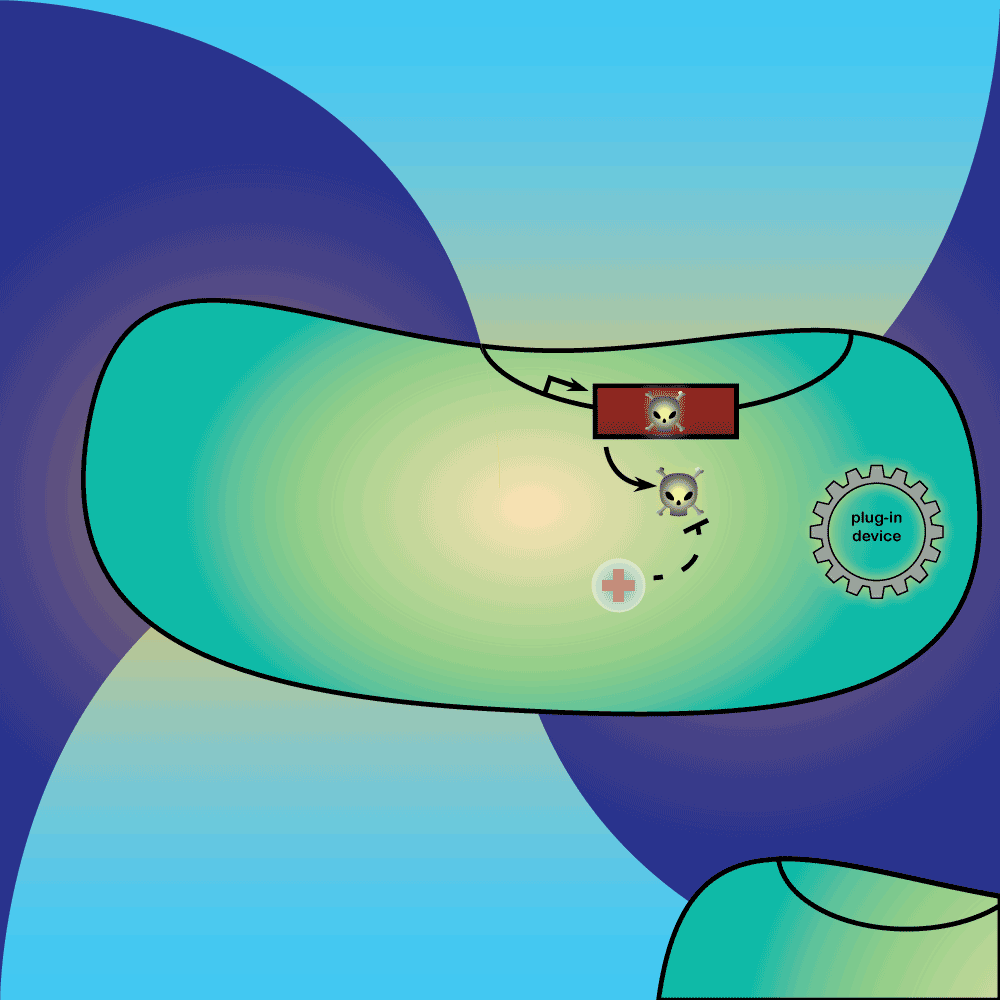Team:Paris Bettencourt/Overview
From 2012.igem.org
(Difference between revisions)
| Line 46: | Line 46: | ||
</style> | </style> | ||
| - | |||
| - | |||
<div class="gallerycontainer"> | <div class="gallerycontainer"> | ||
| - | <a class="thumbnail" href="#thumb"><img src="https://static.igem.org/mediawiki/2012/1/1c/SemanticContainment.png" width="100px | + | <a class="thumbnail" href="#thumb"><img src="https://static.igem.org/mediawiki/2012/1/1c/SemanticContainment.png" width="100px" border="0" /><span><img src="/wiki/images/8/8f/Toxin3aPB12.gif" width="300px" /><br />Simply beautiful.</span></a> |
</div> | </div> | ||
Revision as of 14:23, 26 September 2012
Project Overview
Contents |
Objectives
Our project aims to:
- Raise the issue of biosafety, and advocate the discerning use of biosafety circuits in future iGEM projects as a requirement
- Evaluate the risk of HGT in different SynBio applications
- Develop a new, improved containment system to expand the range of environments where GEOs can be used safely.
To do so, we:
- Engaged the general public and scientific community through debate
- Raised the question about how we can regulate this practices
- Compiled a parts page of safety circuits in the registry
- Relied on three levels of containment :
- Physical containment with alginate capsules
- Semantic containment using an amber suppressor system
- An improved killswitch featuring delayed population-level suicide through complete genome degradation.
We strived to make our system as robust against mutations as possible.
General recommandation for a good killswitch device
|
Step 1
Step 2
Step 2.
Step 3
Step 3.
 "
"


 Overview
Overview Delay system
Delay system Semantic containment
Semantic containment Restriction enzyme system
Restriction enzyme system MAGE
MAGE Encapsulation
Encapsulation Synthetic import domain
Synthetic import domain Safety Questions
Safety Questions Safety Assessment
Safety Assessment